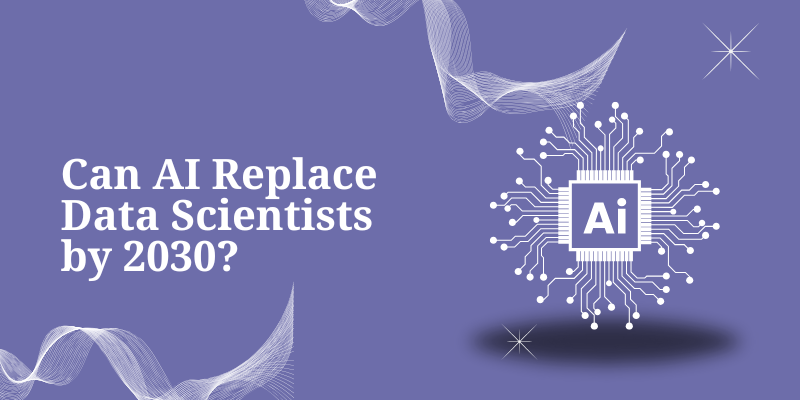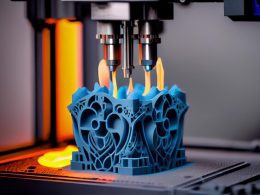Artificial Intelligence (AI) is revolutionizing various industries, and data science is no exception. With the rise of automated machine learning (AutoML) and advanced AI algorithms, a common question arises: Will AI replace data scientists by 2030? While AI has made significant progress in automating data-related tasks, the role of a data scientist is multifaceted and involves creativity, problem-solving, and domain expertise. In this article, we will explore the possibilities and limitations of AI replacing data scientists and what the future holds for this profession.
The Role of a Data Scientist
Data scientists play a critical role in organizations by extracting valuable insights from data. Their responsibilities include:
- Collecting, cleaning, and preprocessing data
- Applying statistical methods and machine learning algorithms
- Building predictive and prescriptive models
- Interpreting results and making data-driven decisions
- Communicating findings to stakeholders
- Understanding business needs and designing data-driven solutions
Data science is not just about coding and algorithms; it requires critical thinking, domain expertise, and an understanding of business contexts.
How AI is Transforming Data Science
AI and machine learning technologies are advancing rapidly, and several tools have emerged that automate key aspects of data science. Some of the major developments include:
1. Automated Machine Learning (AutoML): AutoML platforms like Google AutoML, H2O.ai, and DataRobot enable users to build machine-learning models with minimal human intervention. These platforms automate tasks such as feature engineering, hyperparameter tuning, and model selection.
2. Natural Language Processing (NLP): AI-driven NLP tools are improving data preprocessing, sentiment analysis, and text summarization, reducing the need for manual intervention.
3. AI-Powered Data Cleaning: Data preparation and cleaning are time-consuming tasks. AI-driven tools can automate missing value imputation, outlier detection, and data normalization, making the process faster and more efficient.
4. AI in Decision-Making: AI algorithms can analyze vast amounts of data and provide recommendations, assisting businesses in making data-driven decisions without requiring a data scientist for every step.
Limitations of AI in Replacing Data Scientists
Despite AI’s advancements, there are several reasons why AI alone cannot replace data scientists:
1. Lack of Creativity and Intuition: AI excels at pattern recognition but lacks human creativity and intuition. Data scientists often identify hidden patterns, ask critical questions, and develop innovative solutions that AI cannot replicate.
2. Domain Expertise Matters: Understanding the business problem is crucial in data science. AI lacks the contextual knowledge needed to interpret data effectively and make strategic decisions.
3. Ethical and Bias Considerations: AI models can inherit biases from data, leading to unfair decisions. Data scientists play a key role in identifying and mitigating biases, ensuring ethical AI deployment.
4. The Need for Human Oversight: AI models can produce inaccurate or misleading results. Human intervention is necessary to validate, interpret, and refine AI-generated insights.
5. AI is Not Completely Autonomous: While AI can automate specific tasks, data science involves continuous learning, adapting to new data, and handling unexpected scenarios, which AI is not yet capable of doing independently.
The Future of Data Science: Collaboration Between AI and Humans
Rather than replacing data scientists, AI is likely to enhance their capabilities. The future of data science will involve collaboration between AI tools and human expertise. Here’s how AI and data scientists can work together:
- AI-Assisted Data Science: AI can handle repetitive tasks like data cleaning and preprocessing, allowing data scientists to focus on complex problem-solving and innovation.
- Improved Model Interpretability: AI-powered explainable AI (XAI) tools can help data scientists understand and interpret machine learning models better.
- Faster Experimentation and Prototyping: AI can automate model selection and tuning, accelerating the process of developing new models.
- Enhanced Decision Support: AI can provide insights, but human expertise is needed to evaluate their business impact and make final decisions.
Preparing for the Future of Data Science
As AI continues to evolve, aspiring data scientists should focus on acquiring skills that complement AI rather than competing with it. Here are some key areas to focus on:
1. Strengthen Your Business and Domain Knowledge: Getting to know about business problems and industry-specific challenges will make you invaluable in a data-driven world.
2. Learn AI and AutoML Tools: Familiarize yourself with AI-powered automation tools like AutoML, DataRobot, and TensorFlow to stay ahead in the field.
3. Develop Soft Skills: Communication, critical thinking, and problem-solving skills are essential for interpreting data and conveying insights effectively.
4. Keep Up with Industry Trends: Stay updated with the latest advancements in AI, machine learning, and data science by following research papers, and blogs, and attending conferences.
5. Enroll in Data Science Courses: To stay competitive, consider enrolling in a data science course in Delhi, Noida, Lucknow, Meerut, Indore, and more cities in India that offer hands-on experience, industry exposure, and mentorship from experts.
Conclusion
While AI is transforming the field of data science, it is unlikely to replace data scientists entirely by 2030. Instead, AI will serve as a powerful assistant, automating routine tasks and enhancing human capabilities. Data scientists who adapt to these changes, embrace AI tools, and focus on creativity, ethical considerations, and domain expertise will continue to thrive in the industry.
The key to a successful future in data science lies in staying updated, learning continuously, and leveraging AI to augment human intelligence rather than fearing its replacement. The demand for skilled data scientists will remain strong, making this an exciting time to build a career in the field.












